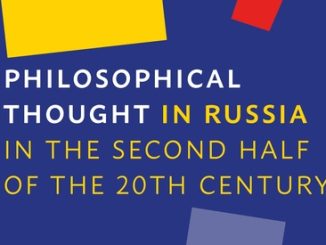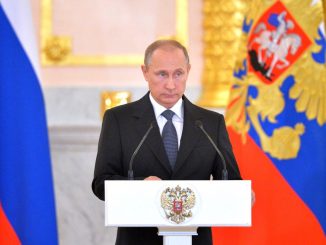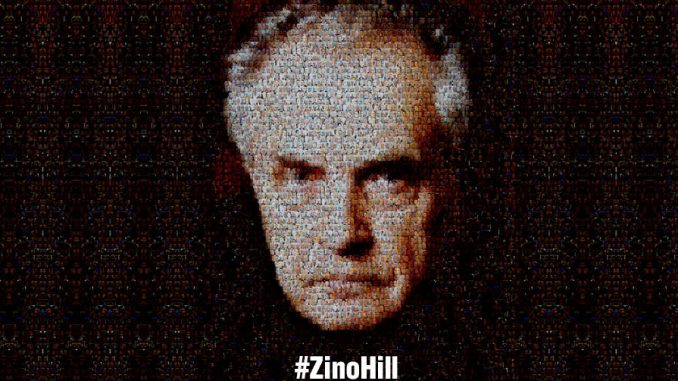
V Mire Nauki (partner relations with the «Scientific American»), November 2017
Old pants have sagged in
knees and in the back.
The generations matter,
not the human track.
My pockets have no crumb of
bread — an empty space.
The essence is in eras,
not in human race.
Hold off the stir!
The quarrels now must end!
Now I will cause the world
to overturn.
And I don’t need a stand.
(Quoted from the novel by
A.Zinoviev «Go to Golgotha»)
95 ANNIVERSARY
Alexander Zinoviev (1922–2006)
- Thinker, one of the three greatest world logicians of the 20th century, world renown writer.
- Greatest Russian ideologist of the late 20th — early 21st centuries
- 1984 and 1999 nominee for the Nobel Prize in literature
- Author of 70 books published in 28 world languages with a circulation of over 3 million copies; hundreds of articles, essays, interviews.
- Laureate of five international prizes, including the Alexis de Tocqueville award, which is considered the highest award, similar to the Nobel Prize, in the field of humanities.
- Member of several foreign academies of sciences, honorable professor of several universities.
- In 2005, A. Zinoviev was awarded the Star of Moscow University, the award that MSU assigns to its most outstanding graduates. He received it in the nomination “Serving the Truth.”
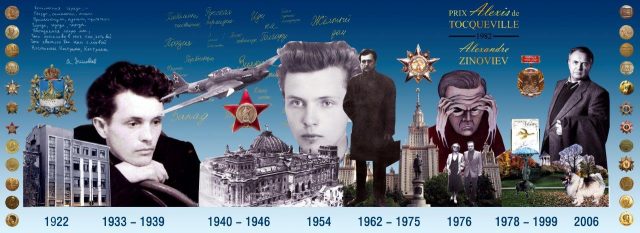
ROMANTIC IDEALIST
He overturned his world at least six times. In 1993, at the age of 11, he left the remote village near Kostroma and went to Moscow (like Lomonosov — to study). In 1939, he was preparing an assassination attempt on Stalin on ideological grounds (the state construction practice did not correspond to his own views of a romantic communist). He was arrested by the secret police, on a tip-off, but managed to escape from the Lubyanka jail — this is when he decided that perfect societies do not exist, but he retained his belief that the communist ideals are the best. During the Great Patriotic War (W WII in the Soviet Union), he made his way from a cavalry soldier, a tankman, to a strike pilot of the legendary «flying tank» IL-2 — a pilot with 18 combat missions, each one up to 20 hours long, including 158 mortal combats minutes. In 1954, he performed a revolution in soviet philosophy by «unspelling» Marx and transferring him from the ideological to scientific channel and began to embody the spring of national philosophy in the 1950s. In 1978, after the release of the «Yawning Heights,» he was deported from the country and deprived of soviet citizenship, by the decision of the CPSU Central Committee Politburo. This was a personal feat of civil self-immolation — how else could he have warned that the country is rotting from the head, and it is becoming more and more difficult to stop this process? In 1999, he returned to his motherland.
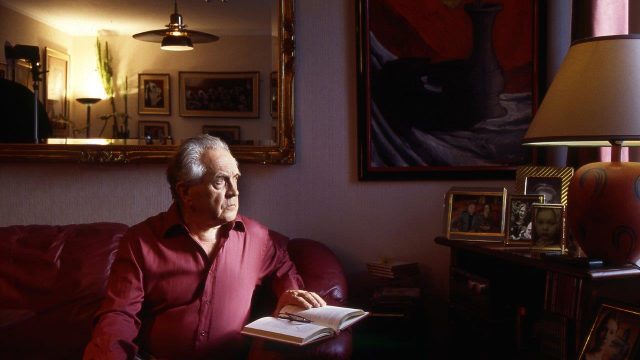
The formation and flourishing of Zinoviev as a thinker occurred in the 1950s, when all the schools in the USSR taught logic (it was a mandatory subject from 1949 to 1956). The first post-war generations of soviet schoolchildren were taught to think hard; they were trained for becoming progress creators. The romantic horizon of the communist future made them believe in themselves and dream about the impossible. Here is a fateful coincidence: it is during this period when breakthrough projects occurred, such as the launch of the world’s first atomic power station in Obninsk, in 1954, and the first artificial Earth satellite, the Soviet spacecraft, in 1957.
Zinoviev created a new form of apprehension of the modern world that got the name “sociologic novel.” His life principles and ethic maxims are also named in Zinoviev’s terms — “zinovyoga.” His life was always in accord with his ethical doctrine; he never adjusted to ideological or political conjuncture. His goal was to comprehend the truth, and his meaning of life was the ability to think freely.
It is still debatable as to what’s more important in Zinoviev’s heritage — his intellectology (a huge project of building a new branch of intellectual activity) or his ethical maxims, following which meant taking the path of a “new human.”
IN THE BEGINNING WAS LOGIC
Zinoviev entered, or rather stormed into, the soviet philosophy in 1954 with his master’s thesis dedicated to the method of ascent from the abstract to the specific, which Karl Marx used when writing the famous “Capital.” Already in his first big work, Zinoviev turned out to be an innovator.
Subsequently, for over two decades, his scientific interests were focused on the issues of logic and methodologies of scientific knowledge. In this area, he gained recognition and authority not just in the Soviet Union, but also far beyond its borders, having joined the list of leading logicians of the 20th century. However, true world fame came to him after the release of the «Yawning Heights» in 1976, for which he and his family were deported from the USSR. The novel was written in the form of a sociologic novel, which he developed himself, where he presented an extremely accurate satirical description of the intellectual, spiritual, and social life in the Soviet Union. The book became a gradual continuation of his theoretical research. After all, logic was not the goal in itself for Zinoviev. He said multiple times that he got engaged in logic and science methodology in order to create a tool that would provide truly scientific research of the life of society.
Zinoviev took a fresh look at the logic subject itself. The concept of complex logic developed by him is based on the assertion that the object of logic as an independent science is language, as the materialization of human consciousness. It appears in the form of a sign system invented by humans and not inherited biologically. The language defined in this way is a means of fixing acquired knowledge and storing and transferring it to new generations — a tool for using existing knowledge to obtain new knowledge.
In the process of evolution, people empirically identified and fixed in the language some stable elements that logic is composed of. But as a science, logic goes further — it describes, clarifies, and improves the empirically formed logical elements of the language, and then creates new logical means, i.e. new types of logical operations, new rules of action with terms, utterances, and logical connectives. It studies the properties of terms and utterances that are independent of whether they are terms and utterances from physics, chemistry, biology, history, sociolocy, economics, etc. In other words, the rules of logic are universal rules that do not depend on the specifics of one or another subject field.
Such is the philosophical and methodological basis of the complex logic theory. It is outlined in a range of works by A. Zinoviev. The fundamental sections of complex logic are the theory of terms and the theory of logical implication. On the bases of the general theory of logical implication, Zinoviev built all the other sections of logic, including the theory of quantifiers, the logic of classes, and the normative and epistemic logic.
Naturally, the question arises: are all the forms and laws of cognitive activity present in the language? Or does consciousness have something not reflected in the language? It is a difficult question. Zinoviev himself did not specifically deal with it. Since he was a convinced rationalist, one can assume that proper scientific cognition for him is the work of the intellect, of the thought, which is performed according to rules and in forms that logic establishes by extracting them from the language as the “matter” of thought. On the other hand, the language, to a certain degree, has autonomy and even power over a human. We see the world in the way the language we use describes it. This was clearly formulated by Martin Heidegger in a well-known aphorism: “Man acts as though he were the shaper and master of language, while in fact language remains the master of man.” The natural language appeared in the process of evolution as a communication means for humans. Only later, it became a cognition instrument. Zinoviev envisioned its further development in this field in synthesizing logic with other cognitive sciences, in forming this way a conceptually new cognition system that he named intellectology.
SOCIOLOGY ACCORDING TO ZINOVIEV
Studying logic had another applied meaning for A. Zinoviev — the development of a methodology for the cognition of social phenomena and processes that meet the scientific criteria used in exact and natural sciences. A. Zinoviev believed that the world of social phenomena is not fundamentally different from the natural world. This is why his descriptions and explanations are performed using the same logic that is used in natural sciences. This was the approach he used to found the theory of society that he built and called sociology. The objects of sociology are associations of people and a stranger’s position, an impartial observer, move towards generalizations by using only facts and logic. If such opportunity did not exist, mankind would long be crushed by the burden of its own mistakes. According to A. Zinoviev, we must distinguish between social cognition and ideological constructs. The ideology cannot ever be scientific, because it appears as a substantiation, justification of certain ideas and goals rather than as search for the truth. However, the demand for ideology always was and always will be, because society will never consist of groups of people whose interests differ.
REAL COMMUNISM

Zinoviev analyzed two world systems, the confrontation of which became the headline news of the 20th people themselves as members of associations. These are empirical objects that exist independently of the observer. At the same time, they are different from natural objects: they possess the will, the intellect, and the ability to plan their activities. The social space that they form has a two-level structure. The first level objects are social atoms, i.e. individual people. The second level objects are social associations for joined conscious activities. According to Zinoviev’s figural phrase, they represent “humant-hills.” As a social atom, a human exists only as a humant-hill member. Tribes, peoples, nations, humanity — these are humanthills, social objects of the second type.
Zinoviev’s innovation is seen in postulating the presence of social necessity that is different from the one intrinsic to the natural world. He believes that the social necessity is founded on the laws of conscious and willful human activity, but these laws themselves do not depend on the consciousness and the will of an individual person. The activity of each individual person can be considered completely free, while the actions of communities or associations are the embodiment of objective necessity.
Another postulate of social ontology by Zinoviev states that social laws are universal. They are the same everywhere, for all times and peoples, where there are social objects, to which they belong, and where corresponding necessity exists.
Zinoviev maintains the objectivity of social cognition in the sense that the utterances on social phenomena that claim to be laws could be evaluated as true or false. They are independent of interests, values and goals, sympathies and antipathies of a particular person. According to Zinoviev, a social phenomena research can occupy century — communism vs capitalism. In 1980, his book “Communism as a Reality” got published abroad. This is not a novel, not a political essay, but a classic scientific monograph.
This work had great scientific and political resonance. According to Raymond Aron, the most authoritative French sociologist and political scientist, a specialist in Marxism, this work was the first truly scientific analysis of real communism, the embodiment of which, according to A. Zinoviev, the Soviet Union was. For this book, in 1982, Aron proposed Zinoviev as a candidate for the Alexis de Tocqueville Prize. 35 years have passed since then, and A. Zinoviev remains the only Russian scientist to have received this prize.Zinoviev said that conceptually there can be no communism other than the soviet type communism. The features of the soviet system characterized in the party documents and monographs of Soviet scientists as shortcomings do not represent neither a relic of capitalism, nor a manifestation of an insufficient degree of maturity of the first phase of communism, called socialism, as the official doctrine claimed. The essence of communism and everything considered transient in it — all of these are generic, essential features of the communist system. They are generated by objective social laws that underlie the sociality of the communist type.
In his book, A. Zinoviev expressed a thought about the soviet society entering the crisis phase. He believed that this was the crisis of the government system, not of social relations, and therefore, it could be surmountable. The rise to power of M. Gorbachev and his Perestroika policy were initially perceived by Zinoviev as an adequate reaction by the CPSU and the soviet society to the emerged crisis. However, very soon he arrived at the conclusion that Gorbachev’s Perestroika is leading not to the renewal of communism-socialism, but to its crash. A. Zinoviev was not afraid to go against the flow, and in 1988 he published a book eloquently titled “Catastroika.” The same year, his second book on the subject came out, titled “Gorbachevism.” Later, after the USSR disintegration, he published more books: “The Russian Experiment” (1994) and “Post-Communist Russia” (1996). In these works, he predicts that the reforms taking place in Russia would not lead to creating a western-type society. Instead, they would result in a sort of intermediate, according to Zinoviev, post-soviet system that combines the features of capitalism, rudiments of the soviet system — especially in people’s conscience, as well as traditions that existed before the soviet period.
All the listed writings are not works on Russian history. They are based on the attempt to comprehend the Russian nature as a specific type of social community, to understand why it was Russia that became the territory of a communist experiment, and why it ended in a failure.
CAPITALISM AND «WESTERNISM»
After communism, A. Zinoviev subjected to scientific research modern capitalism in the shape it took after World War II in the USA, in the European Union states, and in a few other countries. His ideas in this respect are presented in his books: “The West”, “Global Humant Hill”, “The Great Evolutionary Breakpoint,” and others.
Zinoviev believes that the development of mankind is an evolutionary process that happens in three stages: pre-society, society, super-society. Each subsequent stage is more complex than the previous one. Our era has a transitory character, representing a move from society to the super-society.
Zinoviev used the term “westernism” to denote the new system, because, in his opinion, the concept of “capitalism” reflects only some economic features of this system, while modern capitalism is a new type of organization — not so much economic but more social. It got established in the process of not just technological progress, but also the evolution of western European peoples. In Zinoviev’s opinion, they represent human material that possesses a set of features that have determined the leadership of these peoples in humam history.
Unlike communism, in westernism, business components, primarily the state, the financial sector, and corporate governance, have developed most. In economics, westernism is characterized by the existence of a superpower with a hierarchical structure in which some states are leading, others are driven, dependent on the former. In the depths of the supra-community, a special machine of management has developed, and it has nothing to do with democracy. Westernism carries the threat of the westernist super-society overgrowth into the most totalitarian power in human history. What is called globalization, in westernism takes the shape of superpower formation and strengthening, of moving to a unipolar world.
MODERN WORLD: WHITHER GOEST THOU?
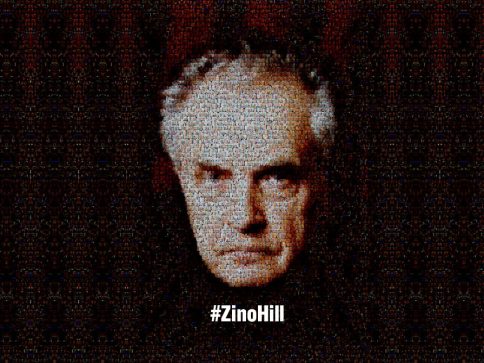
Zinoviev believes that the development of mankind is an evolutionary process that happens in three stages: pre-society, society, supersociety. Each subsequent stage is more complex than the previous one. Our era has a transitory character, representing a move from society to the super-society. For nearly the entire previous century, there were two types of supersocieties present in the world — capitalist (westernism) and communist. With the disappearance of communism, competition vanished from history. The determinant vector of modern world development is to shape not simply a westernist super-society, but a global supersociety of the westernist type.
In Zinoviev’s opinion, the mankind development is no longer a natural historic process, as it was for thousands of years. Nowadays history is planned, managed, and controlled. In conditions of undivided dominance of westernism, the social world where cultural, moral, and humanistic values played a huge role, where creativity was encouraged, is now being replaced by a world where rationality, consumer comfort, and entertainment reign. People are being turned into robots.
“Does mankind have a future?” a thinker might ask. The answer is yes, the physical future. As to the social future, the actual human being is reduced. The purpose of life is gradually disappearing as something excessive. Mechanical rationalization and technicization of life is taking place. The planet will be inhabited by healthy, long and mindlessly living creatures, uniformly determined and totally controlled.
Could we avoid this kind of future? Zinoviev’s evaluation of an optimistic scenario is not too high. In his opinion, a huge rise in mankind intellectual power carried out by geniuses and talents has an inevitable consequence as the fall of the general level of mental development among the basic mass of people, total endarkenment.
Why is this happening? Zinoviev believes that the time has come to revise the entire system of manufacturing, producing, preserving, and spreading intelligence. The intellect, in the form it exists in universities, research centers, monographs, textbooks, newspapers, and magazines, is simply unsuitable for solving the problems of the era. What looks like progress from the outside, is clouding of minds. But high-level intelligence is not needed to rule the world. This is why the future of mankind is the reign of technologically highly developed but spiritually primitive creatures.
BUT MANKIND STILL HAS NOT PASSED THE POINT OF NO RETURN
According to Zinoviev, it would be incorrect to completely abolish the possibility of the return to the communist project in some renewed form. Real communism, embodied by the Soviet Union, failed not because it suffered an innate, birth trauma incompatible with a fullfilling life, but because its development was artificially interrupted.
“We, the Russians,” said Zinoviev, “must discard all illusions regarding the 21st century. It will be not the century of prosperity, holidays, and entertainment, but the century of a fierce struggle for survival by some and for dominating them by the others, for Russia’s national interests by some and for enslaving them with global westernist super-power by the others… It all depends on us. On whether or not our people are able to present enough courageous, honest, and intelligent individuals, whether or not our people are able to support the struggle of these individuals, whether or not the government and the intellectual elite will be on its people’s side. These truths should not be taken simply as a general phrase, but as a practical rule of conduct”.
ZINOVIEV’S LEGACY IS RUSSIA’S NATIONAL ASSET
Zinoviev is the first theoretician of mankind’s global awakening. He dedicated his whole life to the business of intellectual, social, and civil awakening of the world and its main weapon — intelligence. His legacy is directed at rescuing and developing the “understand factor” — the purpose of social existence of mankind, the only condition that helps a human to survive in the modern world as an independent and freely thikning individual. His intellectual tradition is an uncompromised search of a public and civilizational alternative in the world, resisting schedulability and controllability of history, control of the evolutionary process of mankind.
Today the A. Zinoviev Biographic Institute has its doors open. Expert sites have been created. The Zinoviev Club, International News Agency “Russia Today” is aimed at forming a fair image of Russia in the world; the International Intellectual Club “Zinoviev” is oriented at searching answers to global modern era challenges. International conferences “Zinoviev Readings” are conducted worldwide (Paris, Moscow, Berlin, Donetsk, Sofia, Kostroma, Glazov, Stockholm, Manila).
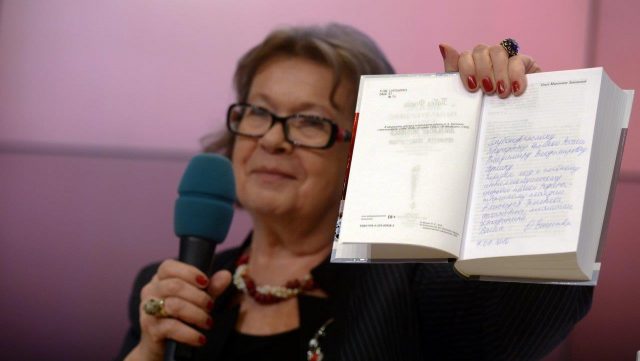
In 2016, the first biography of the thinker was published by Molodaya Gvardia publisher in the series “The Life of Remarkable People.
The book “Alexander Zinoviev. Prometheus Rejected” is a serious academic research by a well known literature historian P. Fokin. Signing the first copy of this book as a present to the Russian President V. Putin, the philosopher’s widow, O. Zinovieva paid attention to this particular phrase: “I am hereby transferring the code to the main intellectual weapon of our motherland — the artistic legacy of Alexander Zinoviev, combatant, thinker, citizen.”
SCIENTIFIC DISCOVERY AS AN OBLATION TO ZINOVIEV
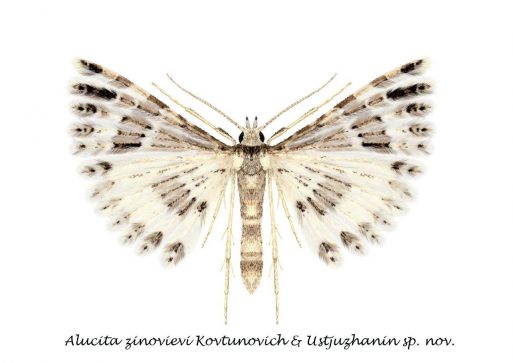
Alucita zinovievi is the name received by a new butterfly species from the many-plumed moth family, in the honor of the 95th anniversary of the famous philosopher, writer, and sociologist A. Zinoviev. According V. Kovtunovich, candidate of biological sciences, the scientific discovery of Alucita zinovievi is a vivid result of international collaboration: the discovery was made at the foothill of the Cameroon volcano by entomologists from Poland and Hungary within the program of material collection on the request by the Russian scientists. The results turned out sensational. There were 28 new species found. Up until then, there were only 50 of them known in Africa. Russian scientists started identifying the findings. The first in the new species description was the many-plumed moth named after A. Zinoviev. The wings of these butterflies are unique and very original — they are not single-piece, as in regular butterflies, but are split into blades — each wing has six blades (plumes). The butteffly resembles a hand fan, which is reflected in its Russian name. The wingspan of Alucita zinovievi is 18 mm. There are about 250 species of many-plumed moths in the world; most of them live in tropical and subtropical areas. Their biggest variety is found in Eurasia and Africa. Many-plumed moths prefer natural areas that are not completely ruined by human activity.
Prepared by Alexey Blinov, Vasily Kovtunovoch, Yuri Soloukhin

